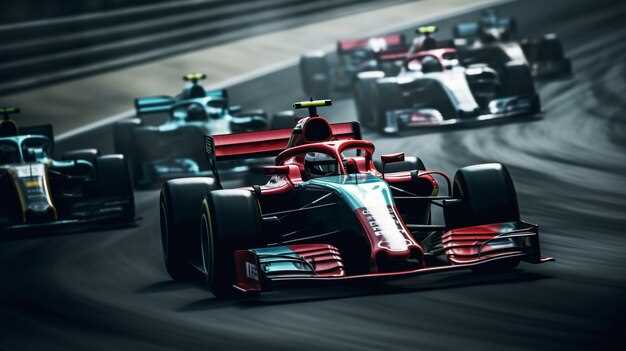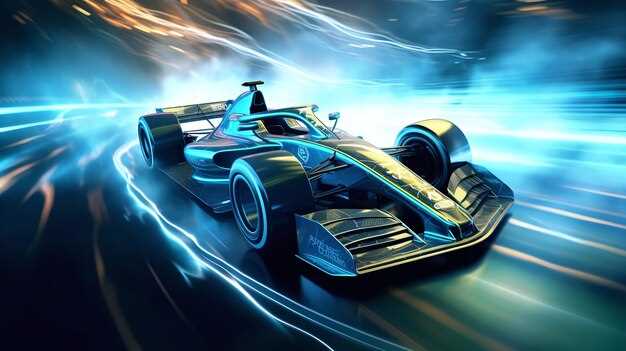
The world of motorsport is undergoing a revolutionary transformation, driven by the advent of electric racing leagues. As the automotive industry shifts towards sustainable energy solutions, the impact on competitive racing has been profound. These leagues not only showcase the technological advancements in electric vehicles but also redefine the essence of racing itself. The thrill of speed merges with environmental consciousness, appealing to a broader audience and fostering a new generation of motorsport enthusiasts.
Electric racing leagues, such as Formula E, have emerged as significant players in the global motorsport arena. They challenge traditional notions of performance and strategy, emphasizing factors like energy management and regenerative braking. The unique format of these races encourages teams to innovate continuously, pushing the boundaries of what electric vehicles can achieve on the racetrack. As a result, motorsport dynamics are evolving, with electrification setting a new standard for the future of the sport.
Moreover, the rise of electric racing has initiated discussions around sustainability and the environmental impact of motorsport. In a competitive landscape where audience expectations are shifting, leagues focused on electric racing demonstrate a commitment to reducing carbon footprints. This shift not only attracts environmentally conscious fans but also inspires traditional motorsport franchises to reconsider their strategies and embrace electric technology. The ongoing evolution presents both challenges and opportunities for teams, sponsors, and fans alike, signaling a pivotal moment in the history of motorsport.
How Electric Vehicles Are Reshaping Race Strategies
The emergence of electric vehicles (EVs) in motorsport is radically transforming the way teams approach race strategies. Unlike traditional combustion engines, electric powertrains introduce unique variables that affect performance, efficiency, and race tactics.
Key aspects of EV integration into race strategies include:
- Energy Management: Teams must innovate in managing battery life while optimizing speed. This involves real-time data analysis to balance power consumption and performance.
- Acceleration Focus: Electric motors deliver instant torque, allowing for strategic acceleration points. Drivers can exploit these bursts of power to overtake opponents or defend their position more effectively.
- Regenerative Braking: EVs are equipped with regenerative braking systems that convert kinetic energy back into battery charge. Smart use of braking zones can enhance endurance throughout the race.
- Pit Strategy Adjustments: Charging protocols are an emerging consideration. Teams now analyze whether to prioritize short, quick charges or longer, sustainable strategies that impact pit stop timings.
Moreover, the competitive landscape in electric motorsport encourages approaches that go beyond traditional racing techniques:
- Collaborative Data Sharing: Teams might share insights on battery tech to enhance overall competitiveness, fostering a cooperative environment that can yield faster development cycles.
- Driver Training Adaptations: As EVs differ significantly from gas-powered vehicles, drivers undergo specialized training to familiarize themselves with new handling dynamics and power delivery.
- Advanced Simulations: Teams are investing in simulation technologies that model various race scenarios based on electric dynamics, enabling precise tactical planning.
Ultimately, the integration of electric vehicles in motorsport not only changes how races are won but also influences the future evolution of racing dynamics, promoting sustainability and innovation across the board.
The Impact of EV Motorsport on Sponsorship and Marketing Opportunities

The rise of electric vehicle (EV) racing is transforming the landscape of motorsport sponsorship and marketing. Brands are increasingly drawn to the sustainability narrative that electric racing represents, aligning themselves with environmentally conscious consumers. This shift has created a unique platform for companies aiming to showcase their commitment to innovation and sustainability.
One of the most significant impacts of EV motorsport on sponsorship is the opportunity for brands to reach a technologically savvy audience. Electric racing events attract fans who are interested in cutting-edge technology and sustainable practices. Companies that engage with this demographic can enhance their brand image and connect with consumers on a deeper level.
Moreover, the growing visibility of electric racing series, like Formula E and Extreme E, provides sponsors with extensive media coverage. This exposure allows brands to communicate their values and messages effectively, maximizing the return on investment for their sponsorship deals. The electrifying nature of these races captivates audiences, creating ample opportunities for targeted marketing campaigns.
Additionally, EV motorsport is fostering partnerships between traditional automotive manufacturers and tech companies. As teams seek to innovate in battery technology and electric performance, these collaborations are paving the way for co-branding opportunities. Sponsors can leverage these relationships to position themselves as leaders in the transition towards sustainable mobility.
The impact of electric racing on sponsorship extends beyond mere visibility; it embodies a shift in consumer expectations. As fans increasingly prioritize sustainability, brands that invest in EV motorsport may gain a competitive advantage. This sector’s dynamic nature invites experimentation and creativity in marketing strategies, enabling brands to engage in new ways that resonate with the values of their audience.
In conclusion, the evolution of electric racing offers a wealth of sponsorship and marketing opportunities. As the motorsport industry embraces electric vehicles, companies willing to adapt their strategies can forge meaningful connections with a growing base of eco-conscious consumers while enhancing their market presence.
Technological Innovations in Electric Racing: What to Expect Next

The electric vehicle (EV) racing scene is rapidly evolving, driven by technological advancements that redefine the motorsport landscape. One of the most anticipated innovations is the development of more efficient battery technologies. These next-generation batteries are expected to provide longer ranges, faster charging times, and lighter weights, thereby enhancing performance and endurance during races.
Innovative powertrain designs are also on the horizon. Engineers are exploring dual-motor setups and advanced regenerative braking systems that maximize energy recovery without sacrificing speed. This not only improves lap times but also contributes to sustainability in racing, aligning with the growing emphasis on eco-friendly practices in motorsport.
Data analytics and artificial intelligence (AI) are becoming integral to electric racing strategies. Teams will increasingly rely on real-time data to optimize vehicle performance and user experience. Predictive algorithms can analyze track conditions, weather, and vehicle dynamics, enabling teams to make informed decisions quickly during races.
Another exciting area is the integration of smart technologies within the racing experience. Fans can expect immersive viewing experiences through augmented and virtual reality. These technologies will offer unique perspectives of the race, enhancing engagement and interaction between drivers, teams, and spectators.
Finally, collaboration between automakers, tech companies, and racing organizations will foster innovations in safety features. Enhanced monitoring systems and advanced materials will improve driver protection and vehicle durability, setting new safety standards in the electric racing domain.




